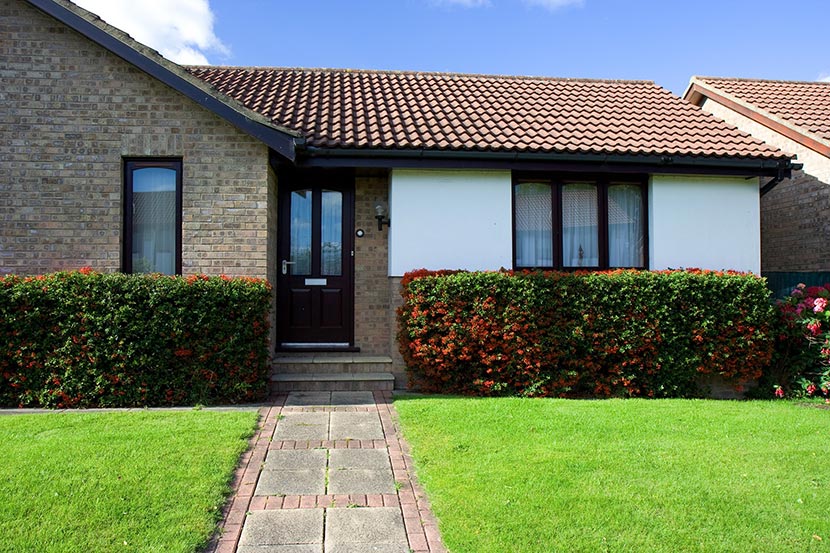What roof types most suited for a one storey house
Selecting the perfect roofing material for a bungalow is a decision that intertwines aesthetics, functionality, and durability. Bungalows, with their distinct architectural charm, low-pitched roofs, and emphasis on integration with the natural landscape, require a roofing solution that not only complements their unique style but also addresses practical concerns such as climate adaptability and maintenance. This comprehensive guide will explore the various roofing options available, focusing on their benefits and suitability for bungalows.

Asphalt Shingles
Advantages: Asphalt shingles stand as the most common roofing material due to their affordability, ease of installation, and versatility. They offer a wide range of colours and textures, which can easily match the exterior of a bungalow. Modern asphalt shingles are also designed with advancements in durability and can come with reflective options to enhance energy efficiency by deflecting sunlight.
Considerations: While cost-effective and versatile, asphalt shingles have a shorter lifespan compared to other materials, typically lasting 20 to 30 years. They may also be susceptible to wind uplift and are not the most environmentally friendly option.
Metal Roofing
Advantages: Metal roofs are known for their longevity, durability, and energy efficiency. They can last 40 to 70 years and are resistant to extreme weather conditions, making them suitable for various climates. Metal roofs reflect solar radiant heat, which can reduce cooling costs in the summer, and are available in styles that can complement a bungalow's aesthetic, including options that mimic traditional tiles or wood shakes.
Considerations: The initial cost of metal roofing is higher than some other materials, but its durability and low maintenance requirements can make it cost-effective over time. It's also important to ensure proper installation to avoid issues with noise from rain and expansion/contraction of the metal.
Slate Tiles
Advantages: Slate roofing offers unparalleled beauty and durability, with a lifespan that can exceed 100 years. Its natural variation in colour and texture enhances the traditional charm of bungalows. Slate is fireproof and highly resistant to harsh weather conditions.
Considerations: One of the most significant considerations for slate is its weight; it is heavier than most other roofing materials and may require additional structural support. It's also one of the most expensive options, both in terms of materials and installation costs.
Clay and Concrete Tiles
Advantages: Clay and concrete tiles are exceptionally durable and offer a distinct aesthetic that can complement Mediterranean or Spanish-style bungalows. These tiles are non-combustible, offering excellent fire resistance, and their thermal properties can help regulate indoor temperatures, contributing to energy efficiency.
Considerations: Like slate, clay and concrete tiles are heavy and may necessitate structural reinforcement. They are also on the higher end of the price spectrum, making them a significant investment. Wood Shingles and Shakes
Wood Shingles and Shakes
Advantages: Wood shingles and shakes provide a natural, rustic look that can be particularly appealing for cottage-style bungalows. Cedar is a popular choice due to its durability and resistance to rot and insects. Wood roofing can offer good insulation properties and blends seamlessly with natural surroundings.
Considerations: Wood roofing requires regular maintenance to prevent moss, mould, and decay. It is also more susceptible to fire unless treated with fire retardants. The lifespan of wood shingles and shakes can vary widely based on maintenance and environmental conditions.
Green Roofs
Advantages: Green roofs, covered with vegetation, offer a unique option for eco-conscious homeowners. They provide excellent insulation, reduce stormwater runoff, improve air quality, and can extend the lifespan of the roofing system by protecting it from UV radiation and physical damage.
Considerations: Green roofs require a significant initial investment and ongoing maintenance. They also need a strong structural support system due to the added weight of soil and vegetation.
Choosing the Best Roof for Your Bungalow
When deciding on the best type of roof for a bungalow, homeowners should consider not only the material's appearance but also its performance in local climate conditions, its durability and maintenance needs, and its impact on the home's energy efficiency. The right choice balances these factors with the homeowner's budget and personal aesthetic preferences.
In regions prone to severe weather, durable materials like metal or slate may be preferable. For those seeking a traditional look, wood shingles or clay tiles may offer the desired aesthetic. Homeowners interested in sustainability may lean towards green roofs or energy-efficient metal roofing.
Ultimately, the best roofing material for a bungalow enhances its architectural beauty while providing reliable protection and comfort for its inhabitants. By carefully weighing the options and considering their home's specific needs, homeowners can make an informed decision that ensures their bungalow remains both charming and resilient for years to come.


